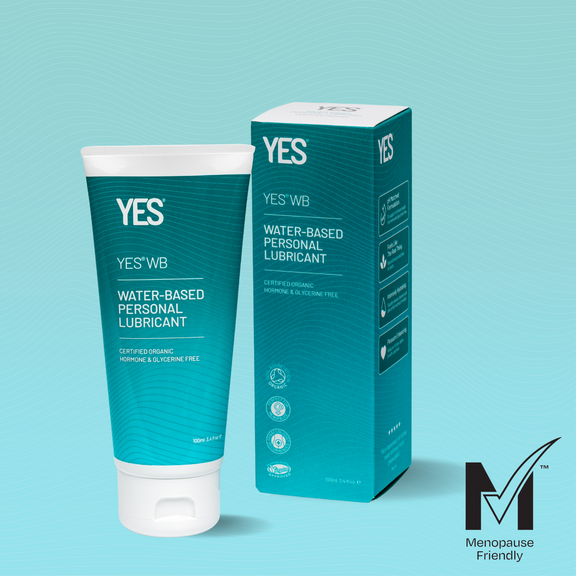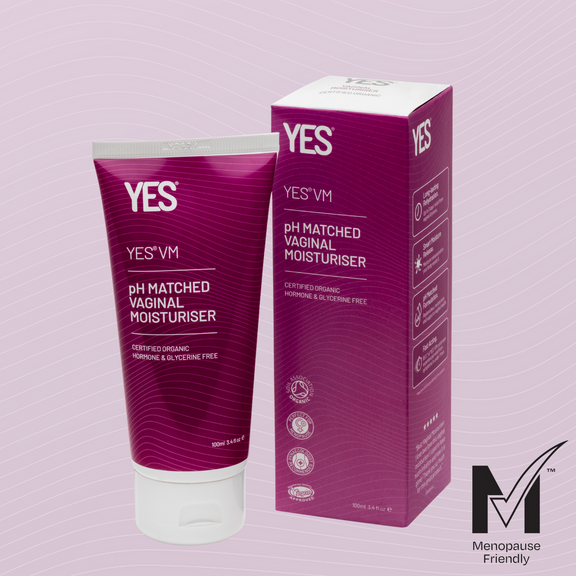YES products - no tricks, just treats!
Take a look at some common intimacy products and you may find that the ingredients list is enough to make your hair stand on end! It is likely that you’ll find they include synthetic chemicals, such as skin irritants, petroleum extracts, plastics or even some with hormone mimicking properties. Others’ ingredients are not declared on the packaging and are hard to find online too; have a look next time you are shopping.

Our belief is that you should know what you are putting in your body and that facilitating something as wonderfully natural as sex should also be as natural as possible. That’s why you won’t find any synthetic surprises in our products. We favour transparency (not the spooky kind!) so we list all of our ingredients on our packaging and on our website. Plus, our knowledgeable customer service team are always very happy to answer any questions about them. To help you make the best possible choice for you and your body, we’ve put together a list of chemicals and additives that we recommend you avoid using in sexual intimacy products, and the body-kind alternatives to look out for.
Ingredients to avoid:
Glycerine & Propylene glycol
Whilst glycerine is renowned for its moisturising properties in external skincare and shower gels, the same can’t be said for its use in intimacy products. A complex sugar, glycerine can serve as a nutrient for microbes such as Candida, especially at a low concentration, and can encourage an outbreak of Thrush. Glycols are often used as a humectant which works to retain or preserve moisture within a product. When applied to the skin, this synthetic ingredient is ‘a penetration enhancer’ used to ‘pull’ other chemicals into the skin. For those with sensitive skin, it can cause vaginal irritation.Parabens
There has been a lot of coverage in the press about parabens in recent years. There are a range of parabens that include Methylparaben, propylparaben etc. Parabens are a range of synthetic preservatives that prevent the growth of bacteria and moulds within a product. However, a number of studies suggest that as Methylparabens can mimic oestrogen, that they are also potentially a cause for concern regarding breast cancer. The British Menopause Society took an unprecedented step in March 2019, when discussing vaginal dryness, by stating, “Commercially available vaginal moisturisers and vaginal lubricants are recommended as first line treatment. It has been suggested due to the weak estrogenic activity of parabens, that lubricants containing these are avoided (e.g. K-Y jelly, Replens, Astroglide).” YES will never use parabens in its products.Petroleum or petroleum-based ingredients
These include Mineral Oil (Liquidum Paraffinum), Petrolatum (petroleum jelly), Paraffin oil (lamp oil or premium Kerosine) or Paraffin wax. We often hear of people using Vaseline as lube, which we think is a big no! Although these oily creams look and feel as though they should act as an effective lubricant, they are incredibly hard to remove as they coat the skin a, meaning that they stay inside the vagina longer than other ingredients.Silicone-based ingredients
Silicone-based substances such as methyl polysilxane and dimethicone, do have a silky smooth feel, but like petroleum-based substances they will coat the skin, restricting its ability to breathe. They're very hard to wash off which could leave the skin tight and dry.Body-kind alternatives used by YES:
Guar Gum Cyamopsis tetragonoloba
Also known as guaran, guar gum is extracted from guar beans. It acts as a plant-derived thickening agent, emulsifier and stabilizer.Aloe Vera Aloe barbadensis
Aloe vera is renowned for its skin healing properties. At the right concentrations, the active form of aloe vera that we use to moisturise, soothe and heal naturally.Locust Bean Gum Ceretonia silique
Locust bean gum is a plant gum extracted from the seeds of the carob tree, which gives viscosity and a slippery texture to our water-based products.Flax Linum usitatissimum
Also known as common flax or linseed, Flax fibres are amongst the oldest fibre crops in the world, and can be used to make linen. Flax gum has a rich, clean slipperiness and has been known to help heal wounds and skin abrasions. It has been cultivated by man for 6000 years to heal mucous membranes.Cocoa Butter Theobroma cacao
This butter from the cocoa bean is richly emollient and packed with antioxidants, it contributes towards making a rich, nourishing and long-lasting lubricant.Shea Butter
Extracted from the nut of the African shea tree (Vitellaria paradox), shea butter is widely recognised as an outstanding moisturiser. Often used as a base for medicinal ointments, it has been claimed to have anti-inflammatory properties and helps to heal dry skin and soothe irritation.Sunflower Oil Helianthus annuus
Sunflower oil is richly moisturising and can help skin retain moisture, but is noncomeogenic, which means that it doesn’t block the pores. It has smoothing properties and has a high vitamin E content.
If in doubt, look for the logo
In addition to our high quality plant-based ingredients, we’re also incredibly proud of our Soil Association organic certification. This guarantees that our product’s ingredients and formulation process are regulated to ensure that they are pure, natural and unadulterated. If at times, the market seems like a minefield, we recommend that you opt for a product with the Soil Association logo. That way you know that the product you’re using has been rigorously tested and verified. They’ve done the hard work, so you don’t have to! Follow these links for more information on our ingredients policy and organic certification.




